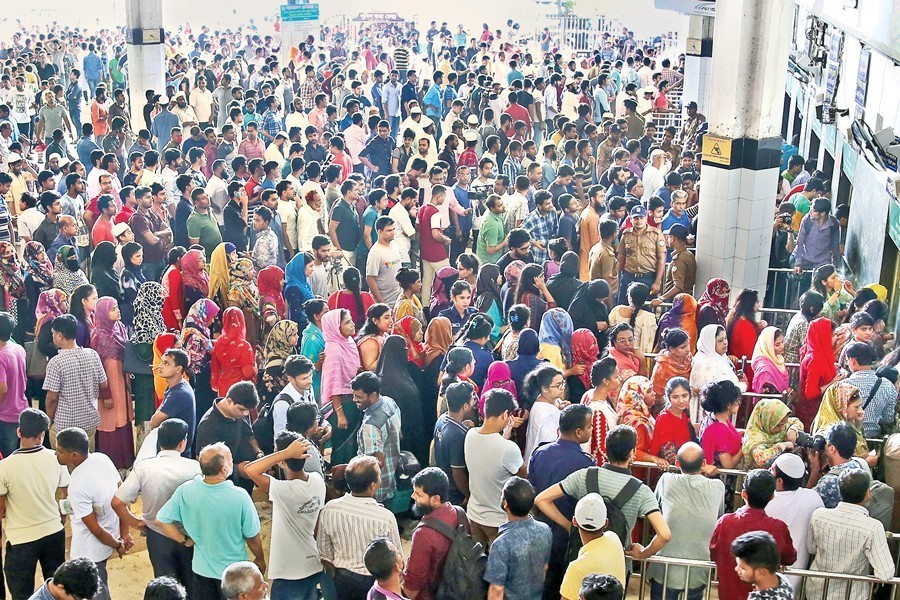
Published :
Updated :

As like the previous year, this year also a large number of home-goers failed to purchase their desired train tickets on the eve of Eid-ul Fitr. This year railway authorities decided to sell 50 per cent of the total ticket through mobile app, SMS and website in advance. But due to technical glitch many failed to connect with the server even after repeated try. So, they also rushed to railway counters adding pressure on the already long queue of ticket seekers. Even some of those who were finally able to make the online purchase also faced troubles while collecting the final paper ticket.
The chaos in railway ticket in Bangladesh is not new. It, however, goes to its peak during two Eid seasons as railway authorities do not have the capacity to supply adequate number of tickets against the accelerated demand. Despite being aware that pressure for demand would be mounted during these festival periods, railway authorities regularly fail to manage it. There are a number of factors behind the failure of the demand management of train tickets.
Quota system for so-called Very Important Persons (VIPs) and reservation for railway officers and employees are an inbuilt problem for ordinary people to avail ticket. Behind the quota and reservation system, underhand dealings create a strong syndicate of controlling ticket. Then a group of railway employees directly support the brokers to sell tickets in the black market. It was believed that digitalisation would reduce such corruption. In reality, partial and flawed digitalisation opens an opportunity for a section of unscrupulous officers and employees of the railway to manipulate with tickets.
The authorities have also failed to extend rail service in line with the greater demand. A master plan has already been prepared to revamp the whole railway and series of projects have also been under implementation. But there is much focus on purchasing rail coaches from abroad than expanding rail networks by converting all the single-track to double-track. Though there is no alternative to double-track and dual-gauge rail path across the country to make rail service efficient, progress in this regard is disappointing. For instance, more than three years ago, a project was launched to transform 16.1 km Dhaka-Narayanganj single rail path to double rail path. It is not sure when the project will be completed as the work moves at a snail's pace.
In fact, success in demand management by the railway requires big push on expanding physical infrastructure. It is comparatively easy to procure new rail coaches and also possible to introduce new trains in different routes. But, lack of adequate rail lines makes the service inefficient and distorted.
Being a safe, comfortable and environment-friendly mode of transport, the demand for train is always high. The authorities' failure to ensure road safety and discipline also drive more people to make their travel by train. But the supply of train service against the high demand is very low. Thus they have to risk their lives, especially on the eve of holiday rush by making their journey by bus. The government's failure to manage the aggregate demand for rail is really costly. Chaos in ticket is one of the reflections of the failure.
asjadulk@gmail.com


 For all latest news, follow The Financial Express Google News channel.
For all latest news, follow The Financial Express Google News channel.